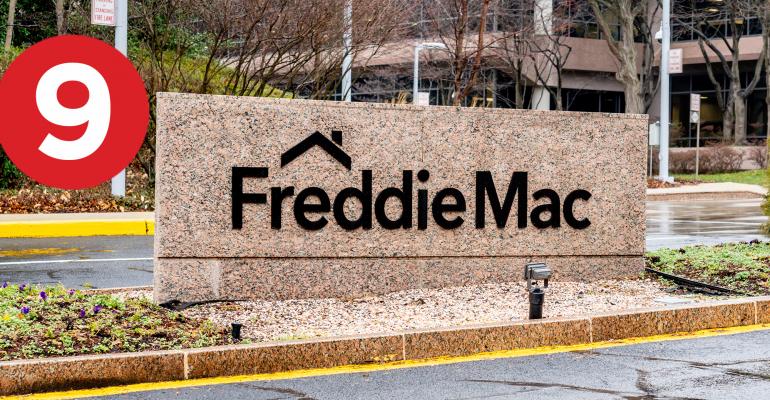- Freddie Mac Appoints Two New Officers To Address Equity In Housing “Freddie Mac appointed Pamela Perry as vice president of single-family equitable housing and Amanda Nunnink as vice president of equity in multifamily housing. Perry will lead a newly formed team responsible for creating solutions to break through historical barriers to achieving homeownership for minority families across the income spectrum…. Nunnink will lead efforts to create sustainable improvements for renters and the rental housing industry and work across multifamily to elevate Diversity, Equity and Inclusion (DEI) principles throughout the division.” (National Mortgage Professional Magazine)
- Close, Reopen, Repeat. Restaurants Don’t Know What Covid-19 Will Dish Out Next. “Repeated closings and reopenings make it tough for small businesses to retain customers and employees. They are particularly painful for restaurants and brewpubs that must give away or toss out unused inventory and then restock. The latest U.S. government tally, released Feb. 5, showed that restaurants and bars have lost nearly 2.4 million jobs since the pandemic hit.” (The Wall Street Journal)
- Millions of U.S. subway riders and workers at risk for severe side effects from air pollution, study warns “The researchers found that commuters and subway workers in at least some of the stations breathe in pollutants that are high enough to increase the risk of adverse health effects. In many stations, the levels of PM2.5 far exceeded the Environmental Protection Agency's safety standards.” (CBS News)
- The Californians Are Coming. So Is Their Housing Crisis. “According to a recent study by Redfin, the national real estate brokerage, the budget for out-of-town home buyers moving to Boise is 50 percent higher than locals’ — $738,000 versus $494,000. In Nashville, out-of-towners also have a budget that is 50 percent higher than locals. In Austin it’s 32 percent, Denver 26 percent and Phoenix 23 percent.” (The New York Times)
- Small Businesses Look To Albany For Rent Relief “To help these businesses, Albany lawmakers are considering legislation called Save Our Storefronts. It would apply to those with 25 or fewer full-time equivalent employees that can document losing more than half their revenue because of COVID-19. For these qualifying businesses, landlords would reduce their monthly rent by 20%. The tenant would then pay up to one third of that new, lower rent. The state would use a new $500 million fund to pay the landlord the difference, enabling them to get 80% of their normal monthly rent. (Gothamist)
- Federal Reserve to Test Ability of Largest Banks to Weather a Recession “The tests assess whether a bank has sufficient capital to withstand a severe downturn and to make four quarters of planned shareholder dividends. If a bank misses that target, it faces automatic restrictions on dividends and buybacks unless it raises additional capital.” (The Wall Street Journal)
- Amazon sues New York attorney general to preempt a state COVID lawsuit “In a complaint in Brooklyn federal court, Amazon accused James of overstepping bounds by legally threatening the company and demanding remedies like its surrender of profit. Federal labor and safety laws preempt those of the state, from which Amazon is seeking injunctive relief, its suit said.” (Reuters)
- Brookfield, Silverstein Tapped to Develop New WTC Residential Tower “The new tower’s site was previously home to the Deutsche Bank Building, which was extensively damaged in the 2001 World Trade Center attack. LMDC, a subsidiary of Empire State Development, purchased the site in 2004 and completed deconstruction, abatement and excavation in 2011—work which was funded by a US Department of Housing and Urban Development grant.” (GlobeSt.com)
- As Trump's businesses struggle, the most profitable asset in his real estate empire is at risk “The cash generated by the Trump Organization's ownership of the two buildings with Vornado is essential given the Covid-19-related economic downturn savaging his other properties. According to Trump's federal financial records filed last month, most of the properties are hemorrhaging revenues.” (CNBC)
0 comments
Hide comments





